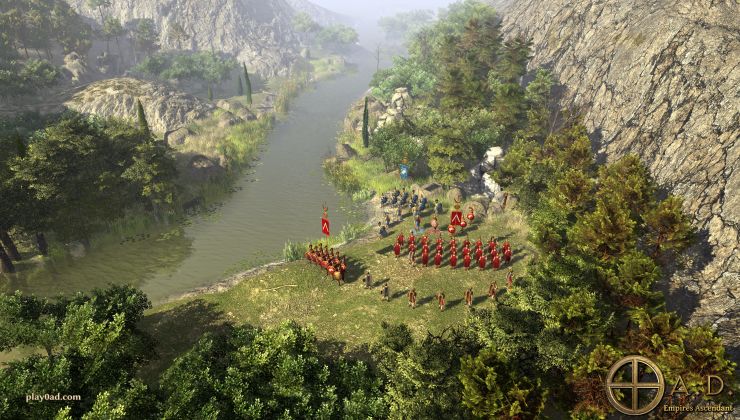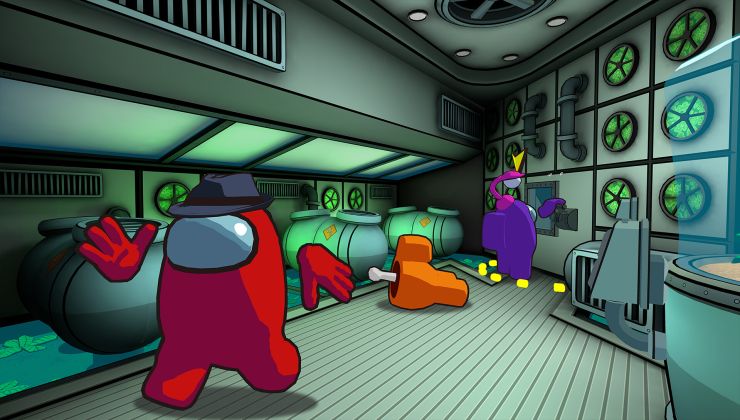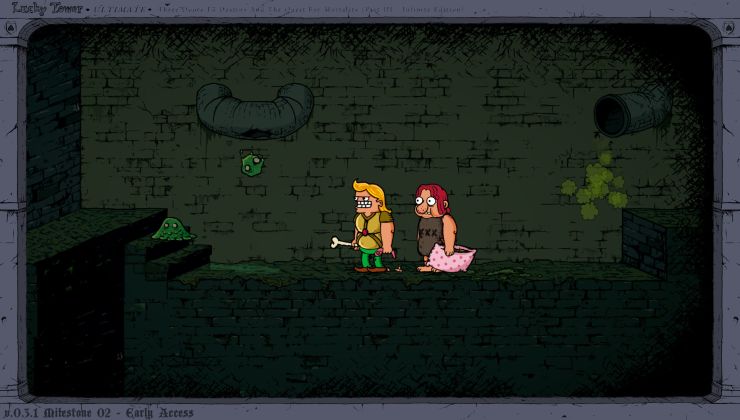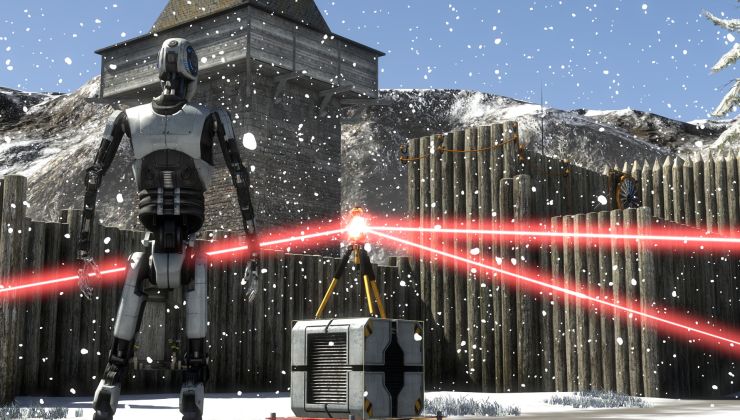Two years ago to the date, Valve Software made an announcement that would change Linux gaming on Steam: that announcement was the new version of Steam Play with the Proton compatibility layer.
Proton is the Valve-funded fork of Wine, a compatibility layer designed to run Windows software on other systems. With Proton, Valve are focusing of course on games and Steam integration with the help of CodeWeavers. Two years on, there's a huge amount more AAA games (thousands) playable on Linux with a few clicks of a button (guide). Thanks to Proton, users moving over from Windows likely don't need to give up a lot of their games, since many should work well and the importance of that cannot be understated as a back catalogue is vital.
Steam Play itself as a feature is definitely very interesting and exciting when you look outside of just Proton too. It's enabled the creation of other compatibility layers like Boxtron for running DOSBox titles on Steam in a native Linux build of DOSBox and Roberta which does the same for ScummVM. Even further than that, it's also the way you can run dedicated Linux builds in a container with the Steam Linux Runtime (info: #1, #2) to enable them to hopefully continuing running forever.
Since the original announcement, it's hard to say if Steam Play and Proton made much of a difference to the user share of Linux on Steam (see our Steam Tracker). It seems mostly stable and hasn't budged much. Not that I expected it to mind you, we still have plenty of mountains to climb with the biggest being that the vast majority of PC hardware people buy comes pre-loaded with Windows 10. We've seen some movement there though with more Linux-focused vendors popping up over the years including: Entroware, Purism, Slimbook, StarLabs, TUXEDO and System76 also continuing to expand. Even Lenovo started moving to add more Fedora offerings and Ubuntu/RedHat too but a huge amount of work has to be done on that to improve things across many more top-tier vendors.
For those curious: there's currently no news to share on the status of anti-cheat support (mostly meaning Easy Anti-Cheat and BattlEye) for Proton. The unofficial work that seemed initially exciting had a major setback when EAC was updated and it all broke. That is just one of the many mountains this compatibility layer needs to overcome, somehow.
I'm still thoroughly curious on what the end game is here and why Valve continue to fund various Linux projects like Proton, Mesa driver improvements, the ACO AMD shader compiler, whatever Gamescope turns into and plenty of others. Will it end up being part of their quest to bring out their own full cloud gaming solution? They have a lot of the tech there ready for streaming and they might end up being one of the last major gaming companies to do it at this rate. Will it be for SteamOS 3.0? Just as a continued backup in case Microsoft lock down Windows? Or is it really just a few passionate Linux fans inside Valve? As always, they remain quite tight lipped about it and one day I hope they agree to my interview requests on it. The future of Linux gaming certainly is looking colourful.
Happy two years, Steam Play and Proton. What will the next two bring?
Ps. if you wish to follow a specific category of news here on GOL, just hit the tags and look for the RSS icon!
They might have their own cloud gaming vision, but the investment in the hardware and bandwidth infrastructure needed seems to be something they are unlikely to make a big bet on.
I'm still thoroughly curious on what the end game is here
My impression is that they don't really need one.
The strategic reasons they had for starting out on the path are still the case, so there's no strategic impetus to stop. Compared to their revenue, their total outlay for supporting Linux is small, and the Linux market likely makes a profit for them. The work is interesting, which fits well with their flat structure. The work can progress incrementally, which fits well with their flat structure. If they did stop the help for new Linux games they'd still be on the hook for supporting all the existing Linux customers without new sales to cover those costs, and the appearance of there being no viable alternative to Windows would mean that they'd end up more dependent on Windows than they were before they started.
So unless they get bought by someone else with radically different strategic priorities, which is extremely unlikely given that Valve is privately-owned and makes an awful lot of money just as it is, I don't see their support stopping. If they happen upon some new amazing thing as a result that puts them in a stronger position, then that's good, but if they don't that's fine, too.
Linux being a good place to scratch one's own itch works just as well for Valve as it does for everyone else.
Last edited by CatKiller on 20 Aug 2020 at 11:54 pm UTC
And of course we expect to release lots of improvements to Steam TV, Chat, the Library, the Store, and other existing features.
There are more projects that we're not quite ready to talk about just yet. Interested in helping out? Please send us your feedback on what's important to you, and if you want to join us in the trenches, we're always hiring.
I just want to say a massive thank-you to all the Proton team, but also the Wine and DXVK folks. You know who you are and, yes, you all rock.
You may well be right but I'll be kind of disappointed if so. I keep hoping they've got some kind of Big Plan that will eventually, when the stars align properly, usher in the forever-awaitedI'm still thoroughly curious on what the end game is here
My impression is that they don't really need one.
Year of the Linux Desktop (TM)
Is there an updated SteamPlay proton whitelist somewhere? A long time since I heard about an update to it.
I think [this](https://steamdb.info/app/891390/) is it. The thing with the whitelist was that Valve agreed to take on support for whitelisted games to help Proton take off, and it turned out that Proton didn't really need that as long as it keeps improving in general.
THANKS!
Still, I can't help but feel sorry for the "porting" companies, Feral & co, as it pretty much rendered them more or less irrelevant. I hope they are not too heavily affected by this and that their services still are in demand.
Is there an updated SteamPlay proton whitelist somewhere? A long time since I heard about an update to it.
I think [this](https://steamdb.info/app/891390/) is it. The thing with the whitelist was that Valve agreed to take on support for whitelisted games to help Proton take off, and it turned out that Proton didn't really need that as long as it keeps improving in general.
Yea the whitelist kinda does not serve that much purpose anymore because the majority of games work. Perhaps useful for some big new titles that people want to make sure are compatible before they buy, or that Valve would want to keep an eye on not to break.
At the beginning people scrambled to post whitelist requests of every working game on github, regardless if those were popular games. Now looking at all the pending whitelist requests, some are old indie games with mixed reviews. So one has to wonder what would be the point in this time to even whitelist them. It is not like it is possible for Valve to keep track of compatibility of the whole Steam back catalog.
Still, I can't help but feel sorry for the "porting" companies, Feral & co, as it pretty much rendered them more or less irrelevant. I hope they are not too heavily affected by this and that their services still are in demand.Personally, I do not use Proton that much. I still play mostly native or Linux ported games.
[
I think [this](https://steamdb.info/app/891390/) is it.
What is exactly the first list (Death stranding, Doom eternal...) with config options ?
The way SteamDB has it shown, is that the first part are games that have special launch options but aren't always on the whitelist.
I think [this is it.
What is exactly the first list (Death stranding, Doom eternal...) with config options ?
I keep hoping they've got some kind of Big Plan that will eventually, when the stars align properly, usher in the forever-awaited Year of the Linux Desktop (TM)If that ever happens, you know the "elite" will turn to telling people off because they're using the "wrong" distro or window manager. Linux won't be anti-cool _enough_ on its own anymore.
Food for thought. Not that it hadn't been seen from the beginning...
https://boilingsteam.com/ethan-lee-troubling-times-for-porters-in-a-proton-world/Good read, thanks for sharing. For me, native games and actual ports still take precedence in a major way. I have a few very tempting games that I might buy heavily discounted at some point, but for my "everyday shopping", I still don’t even look at anything that’s not actually supported on Linux.
Food for thought. Not that it hadn't been seen from the beginning...
Proton is a wonderful tool, but at the end of the day it’s still a crutch, and we need to learn to walk again sooner or later...
Last edited by Salvatos on 21 Aug 2020 at 6:47 pm UTC
You may well be right but I'll be kind of disappointed if so. I keep hoping they've got some kind of Big Plan that will eventually, when the stars align properly, usher in the forever-awaitedI am confident they have a plan. Stadia, Xbox (XGP, XCLOUD, console), EGS and other stores are threatening Steam as a business. Even UPlay is doing good.
Year of the Linux Desktop (TM)
Valve's next venture will be hardware. They have begun with Index and it will go from there.















 How to set, change and reset your SteamOS / Steam Deck desktop sudo password
How to set, change and reset your SteamOS / Steam Deck desktop sudo password How to set up Decky Loader on Steam Deck / SteamOS for easy plugins
How to set up Decky Loader on Steam Deck / SteamOS for easy plugins
See more from me